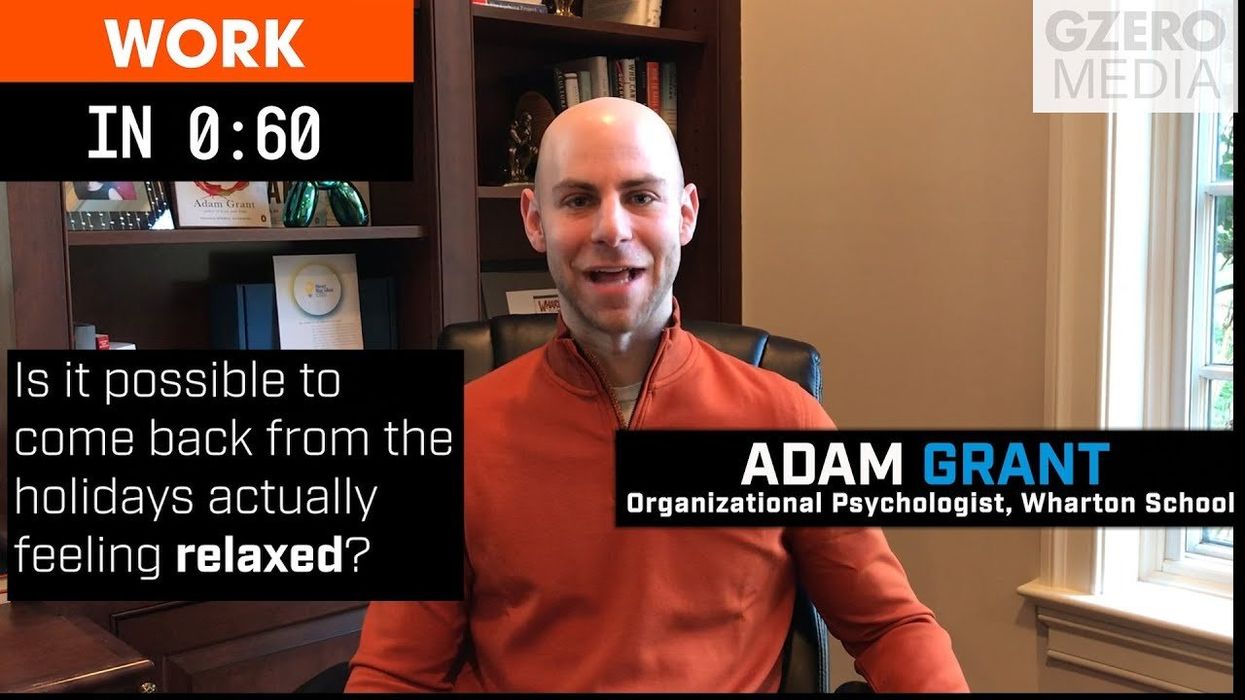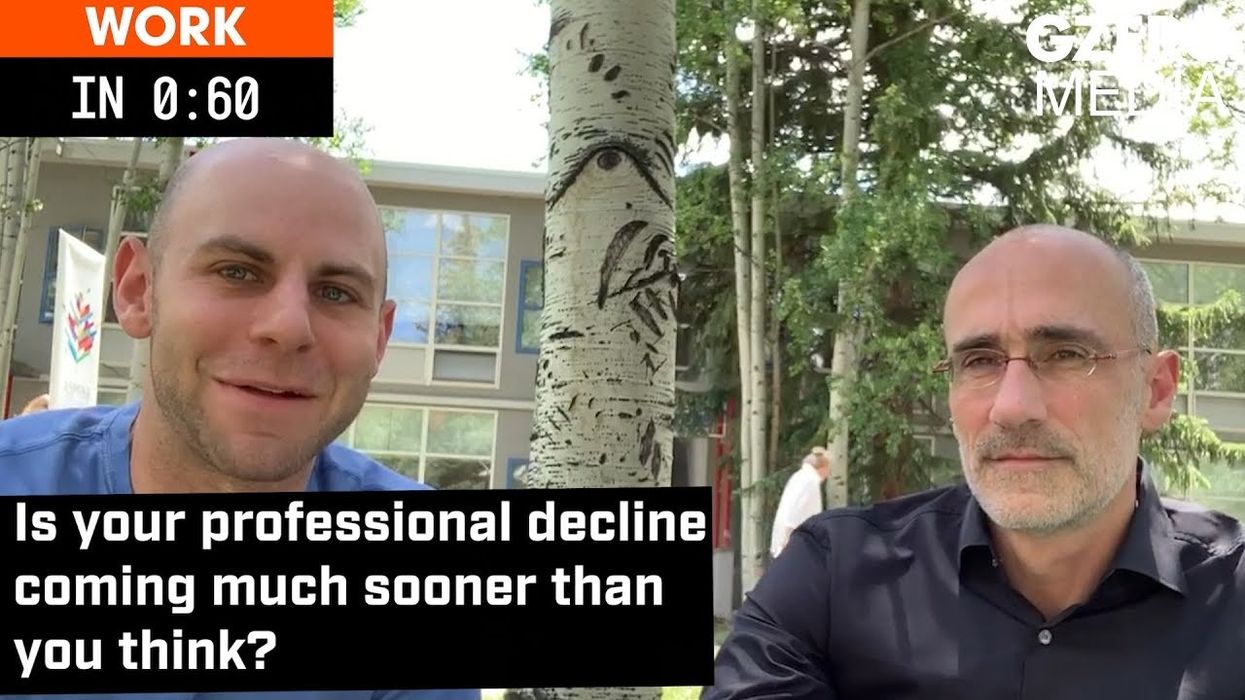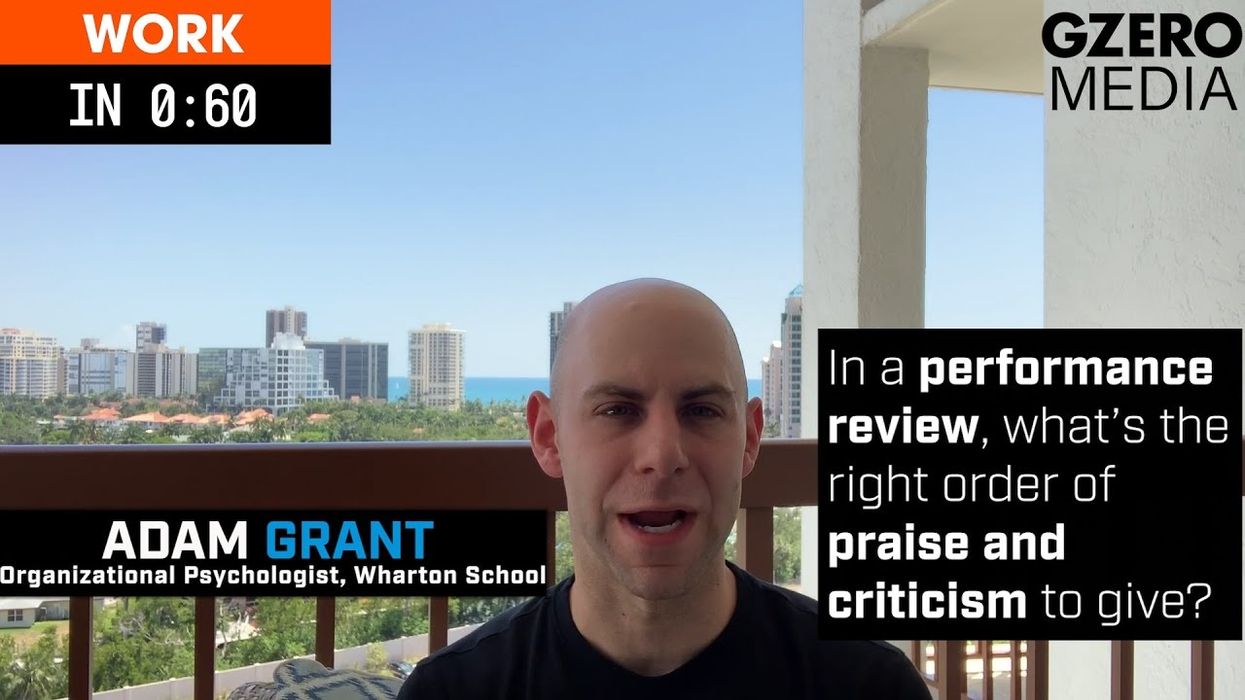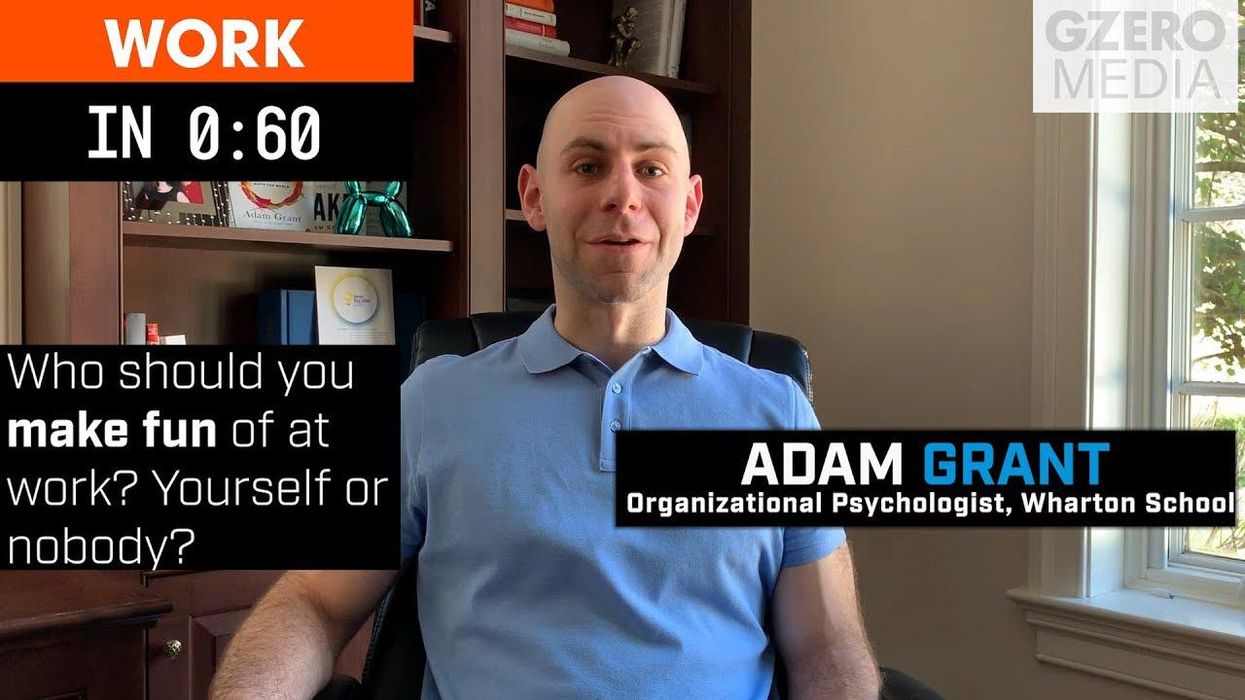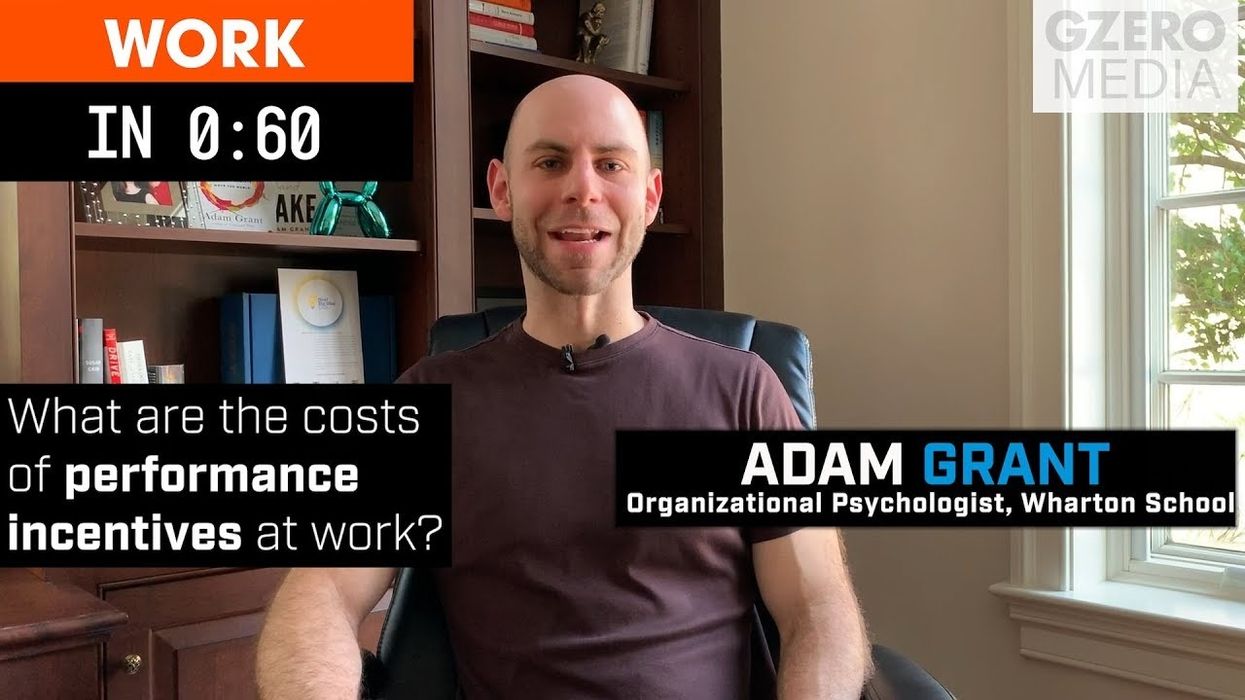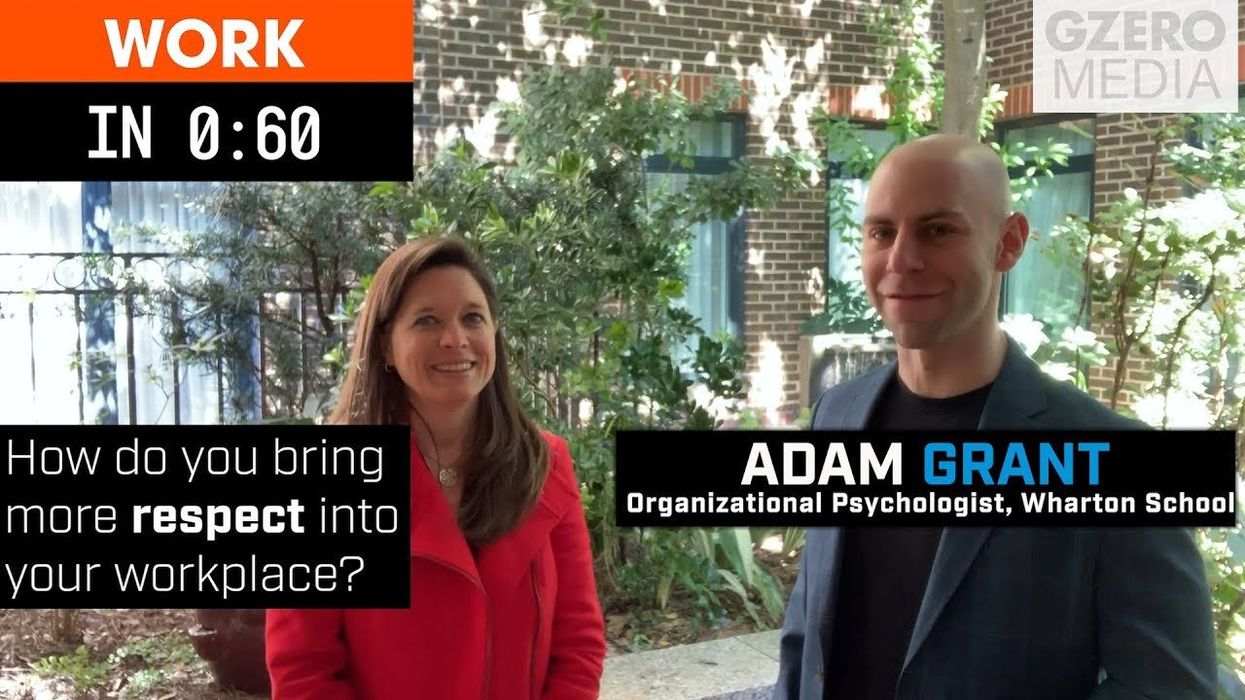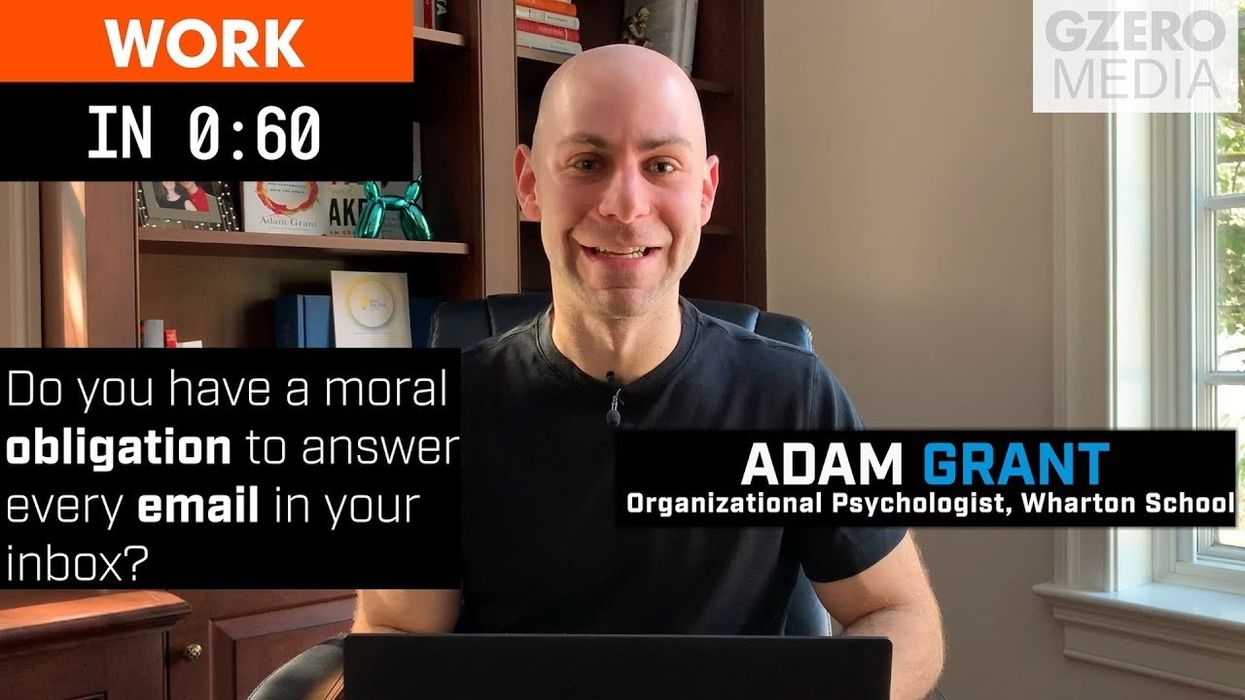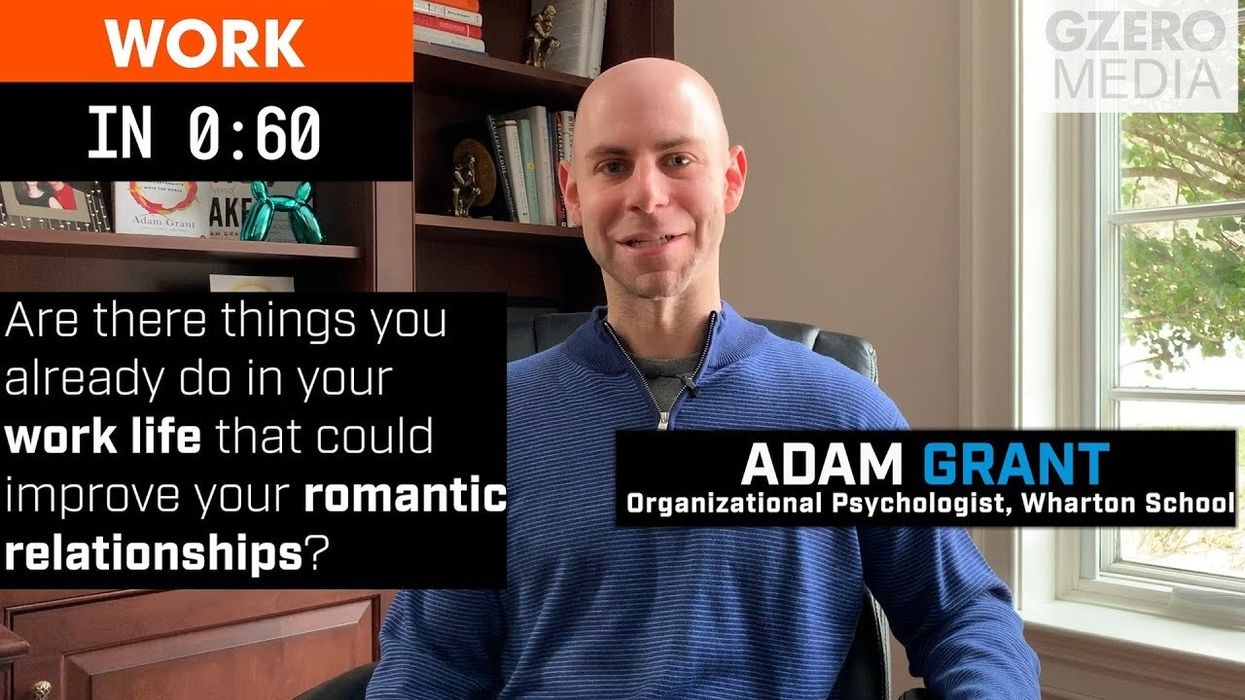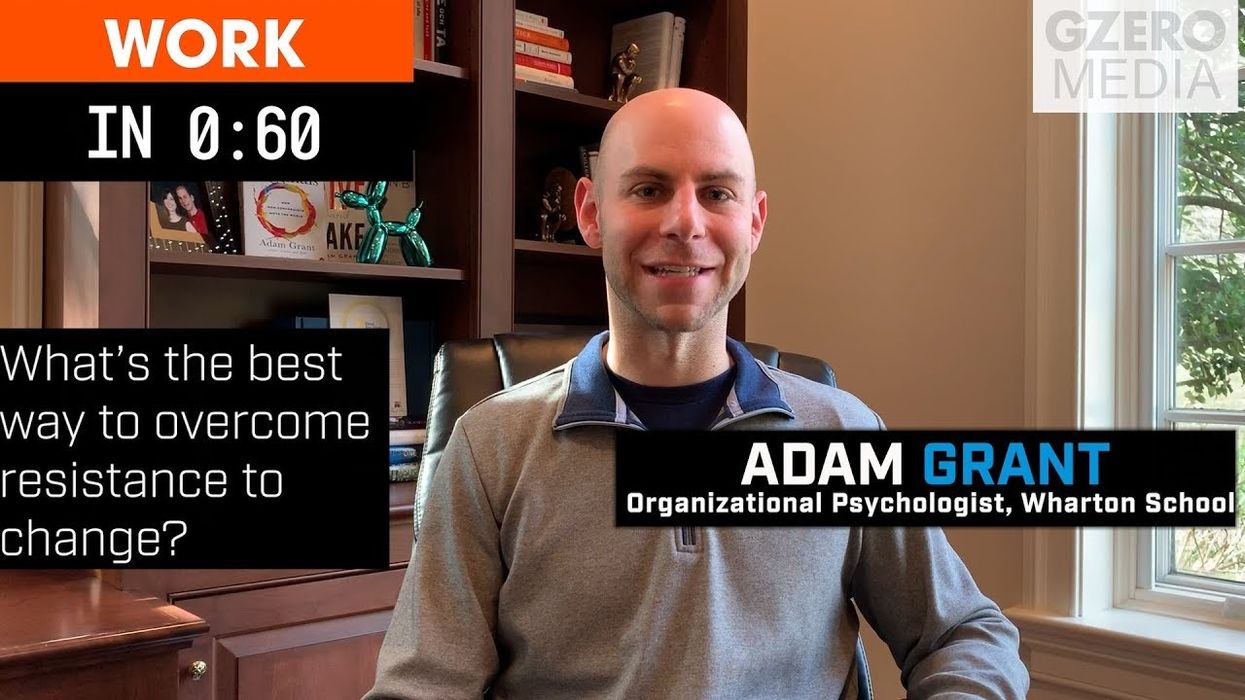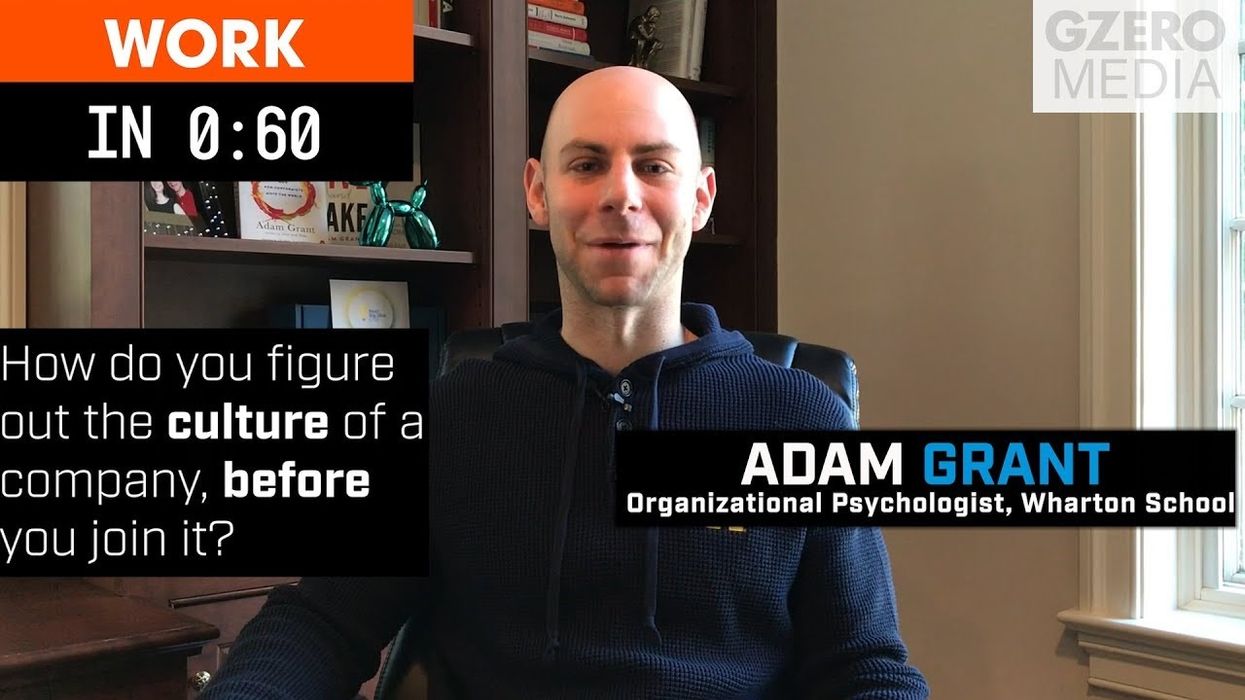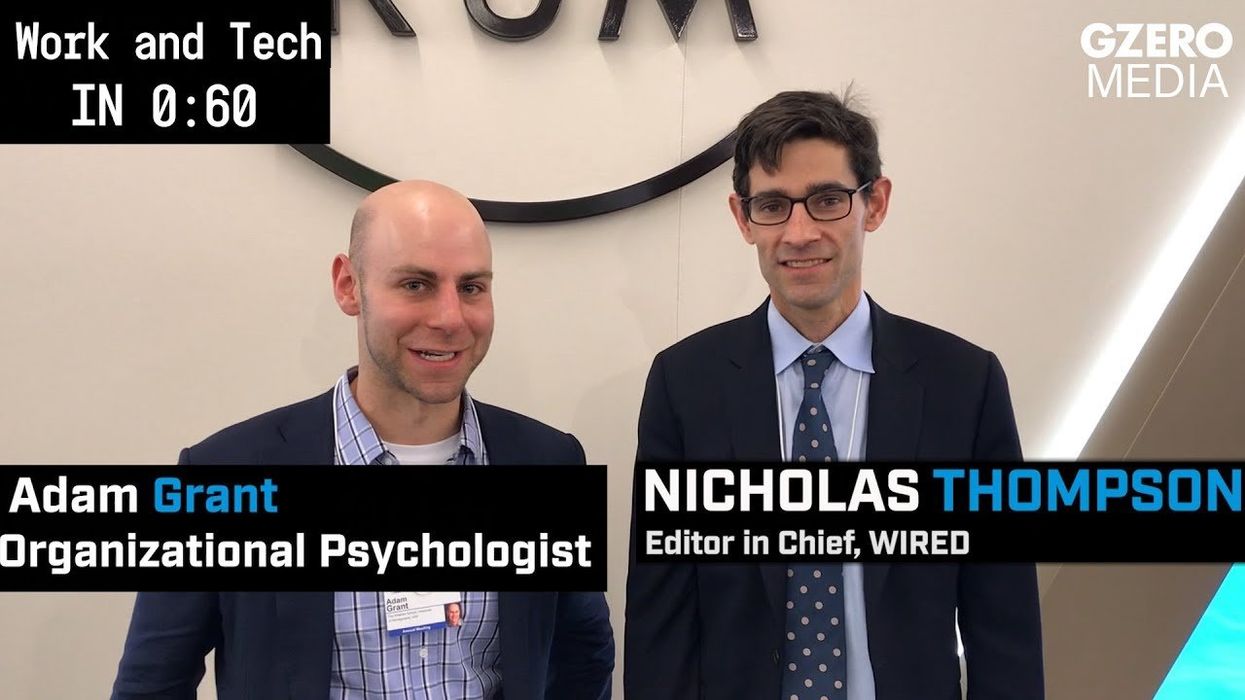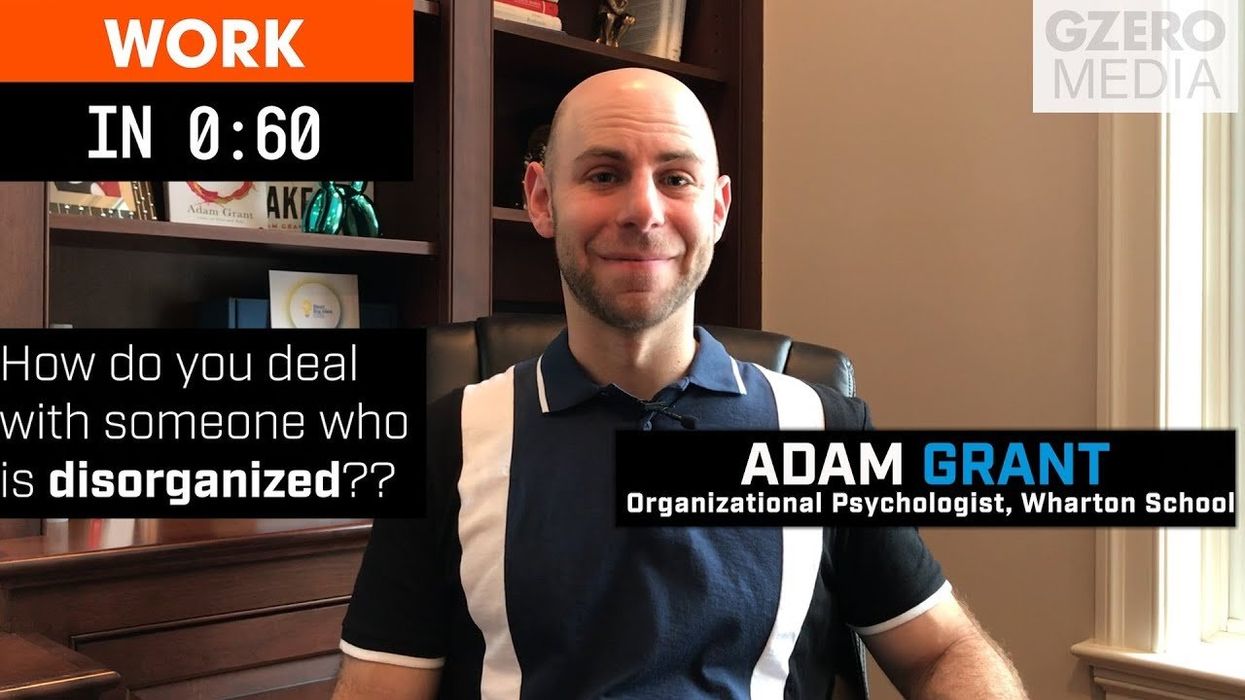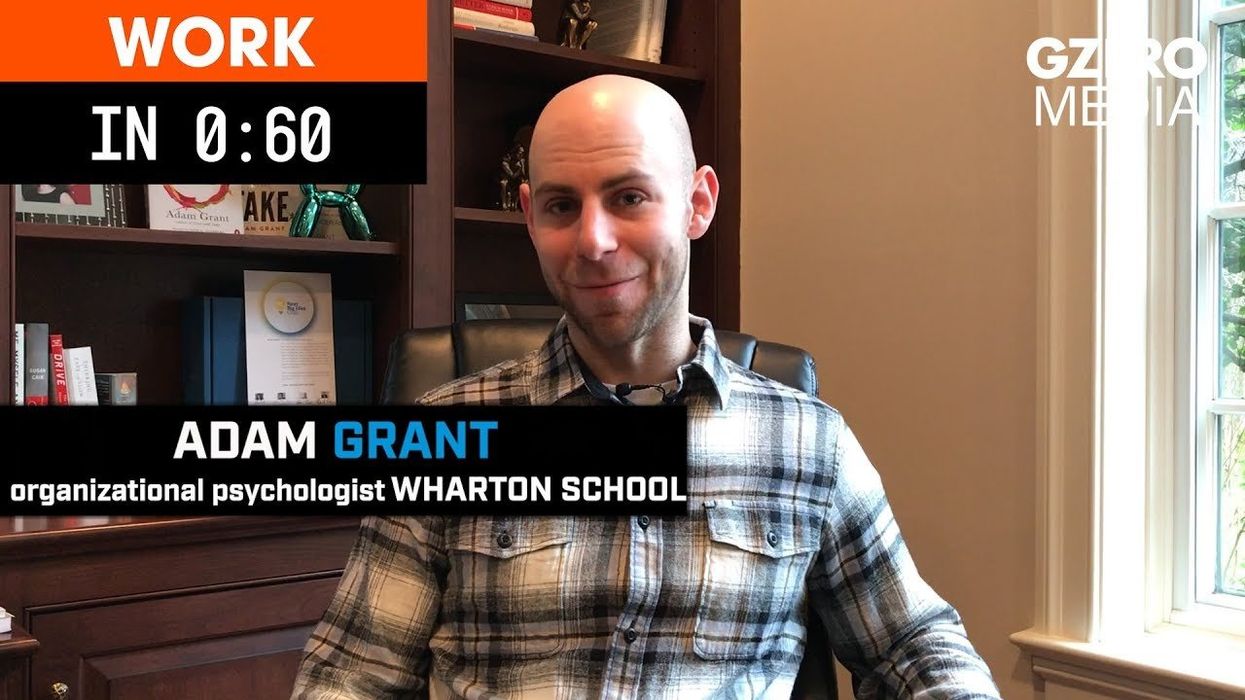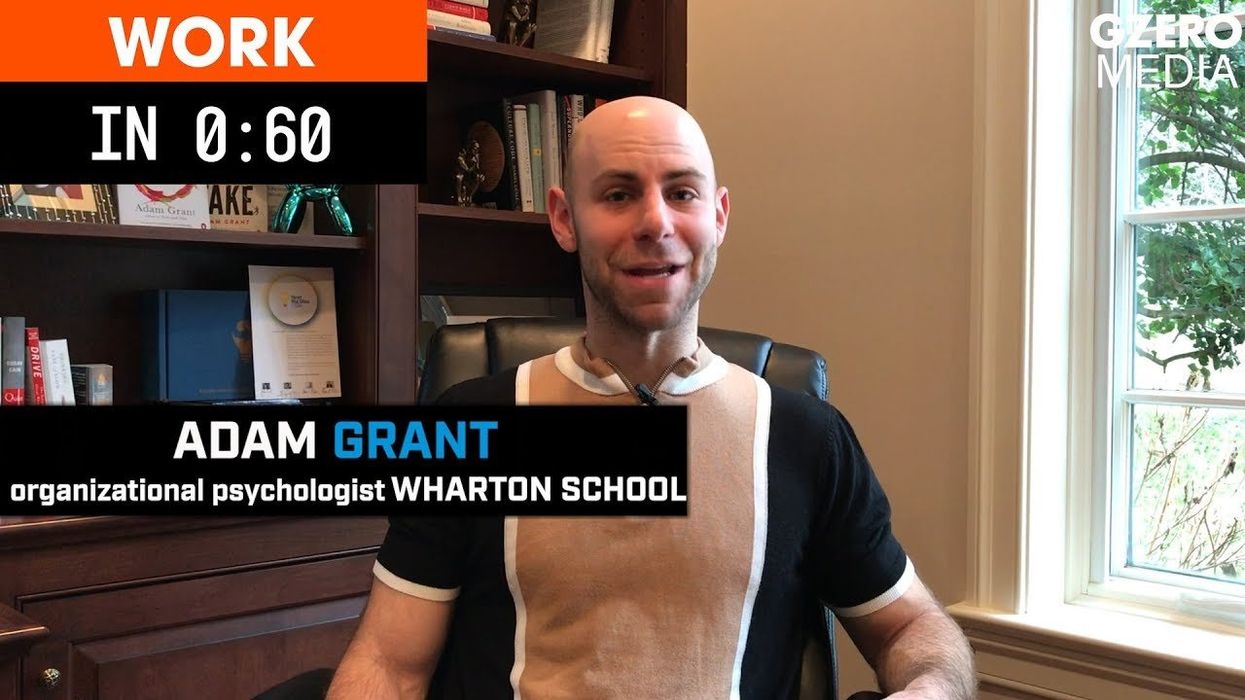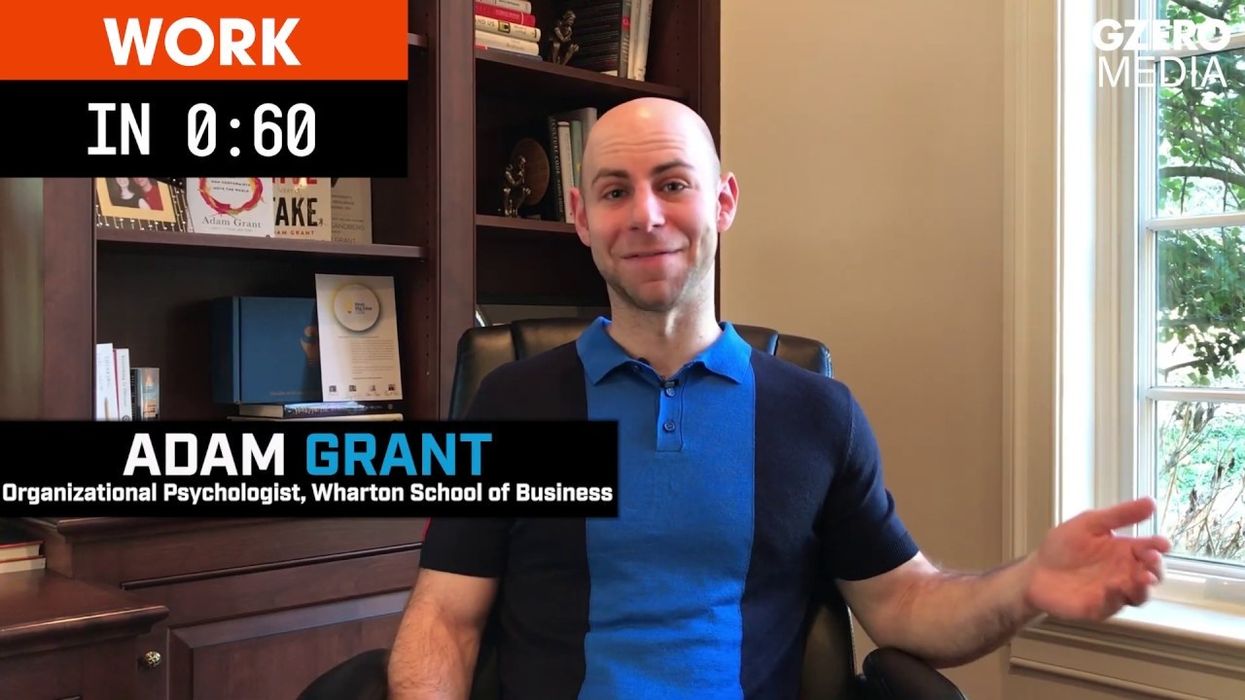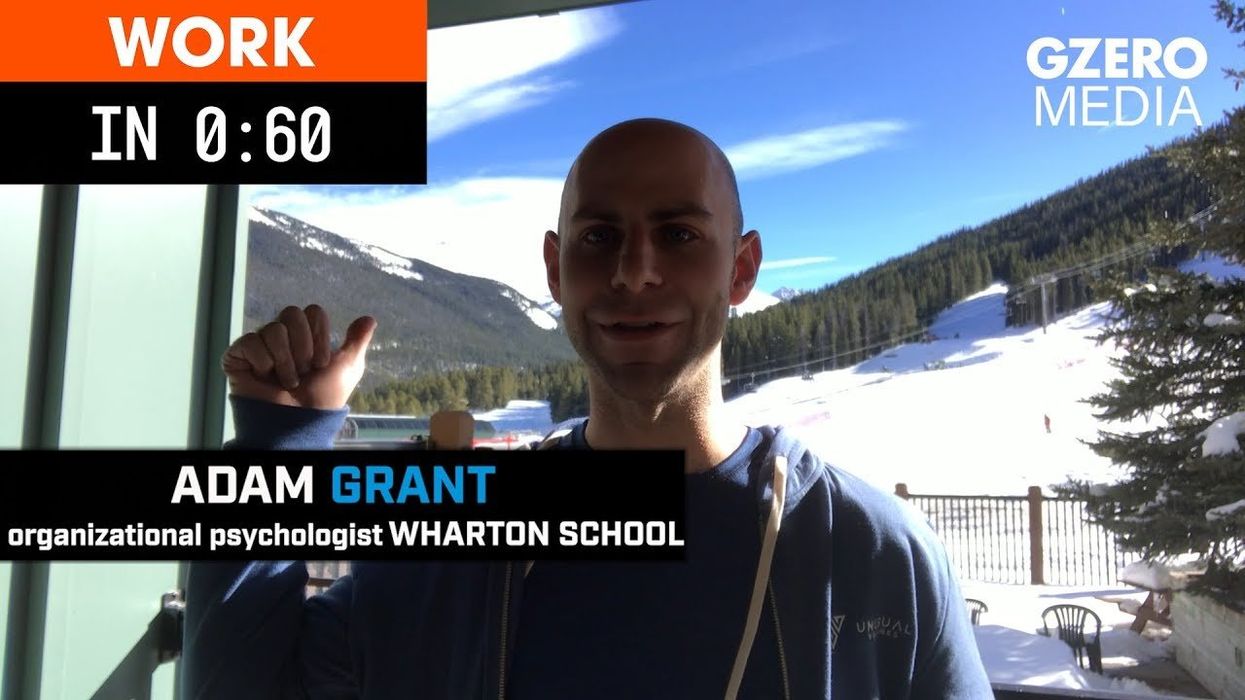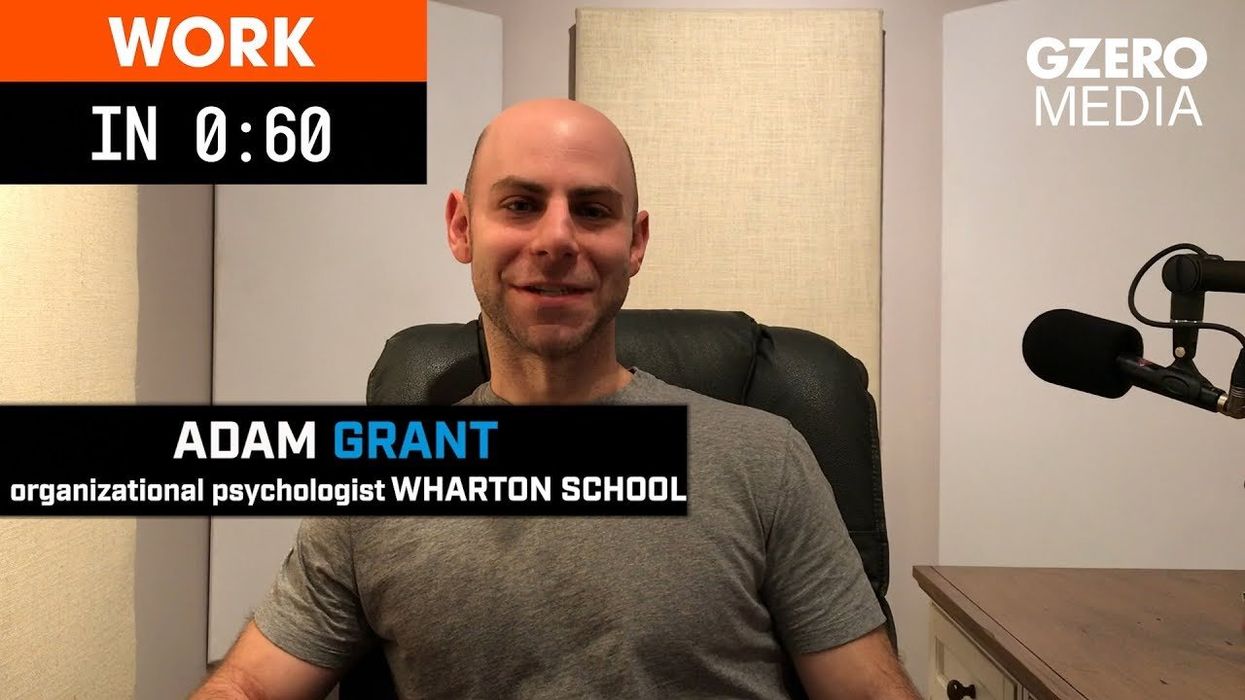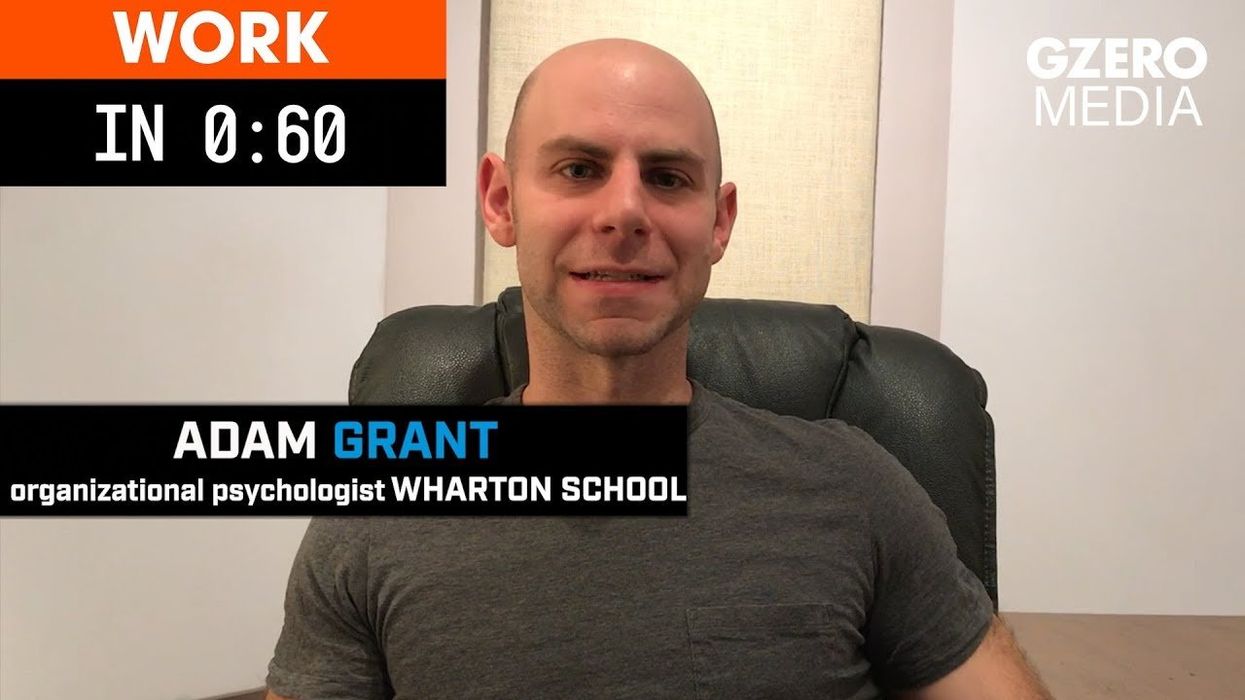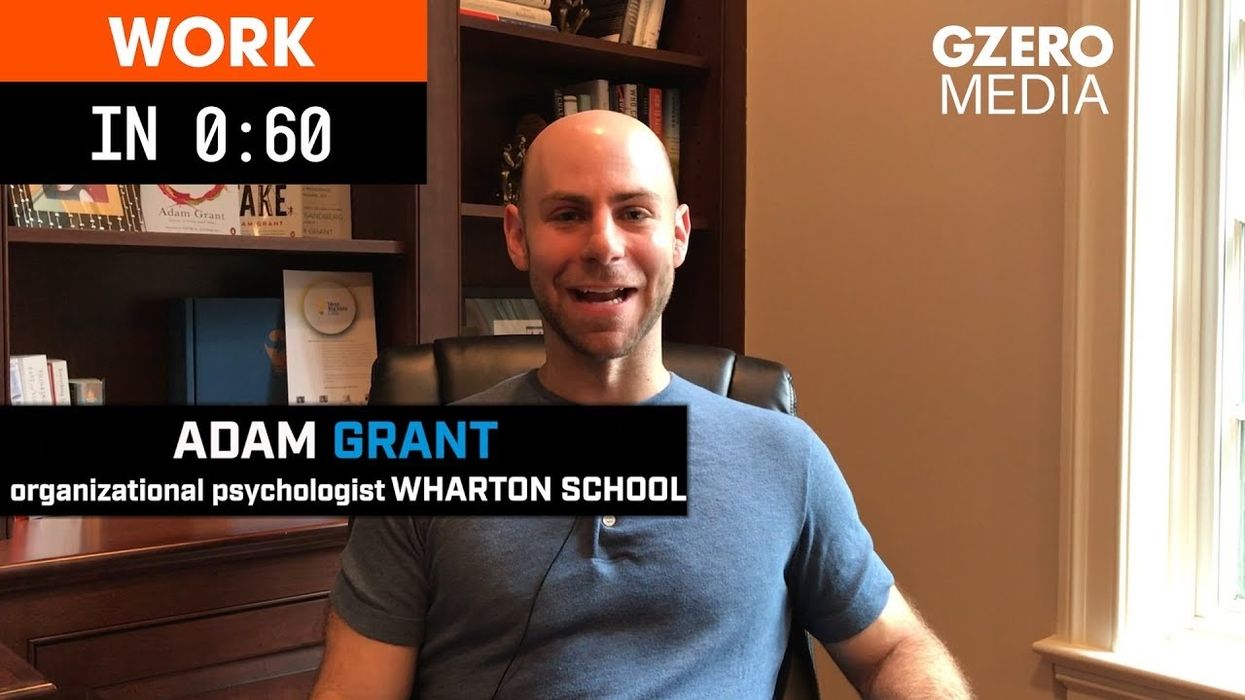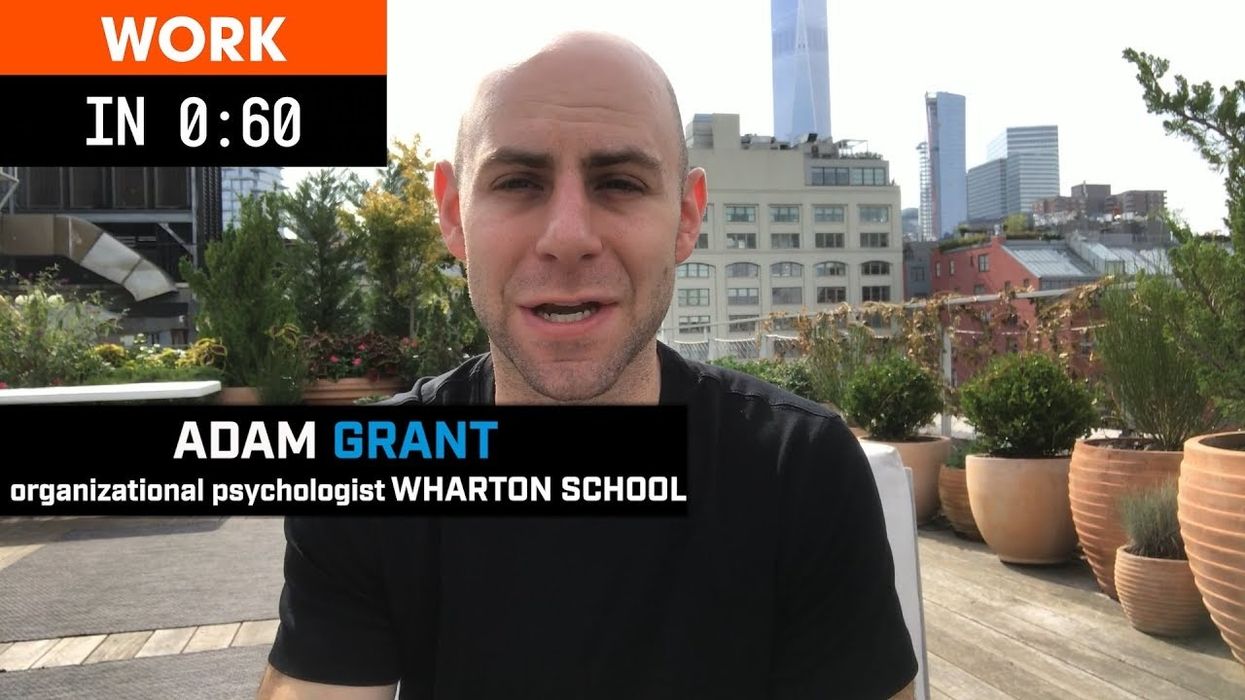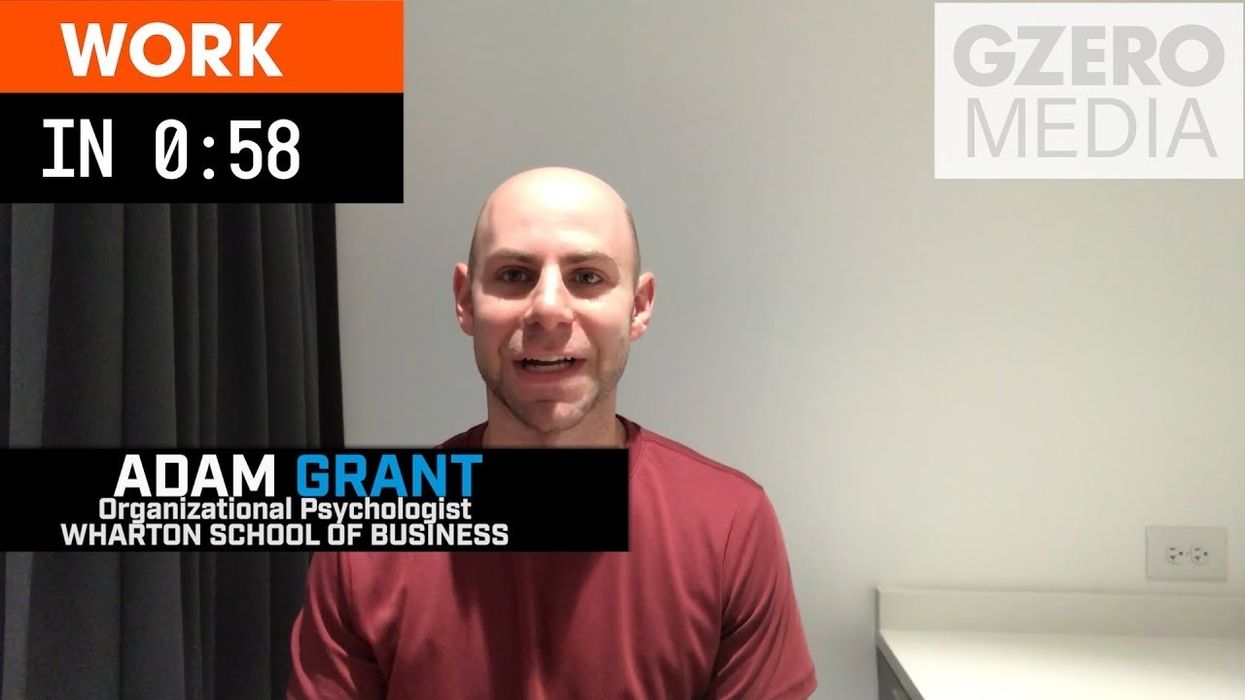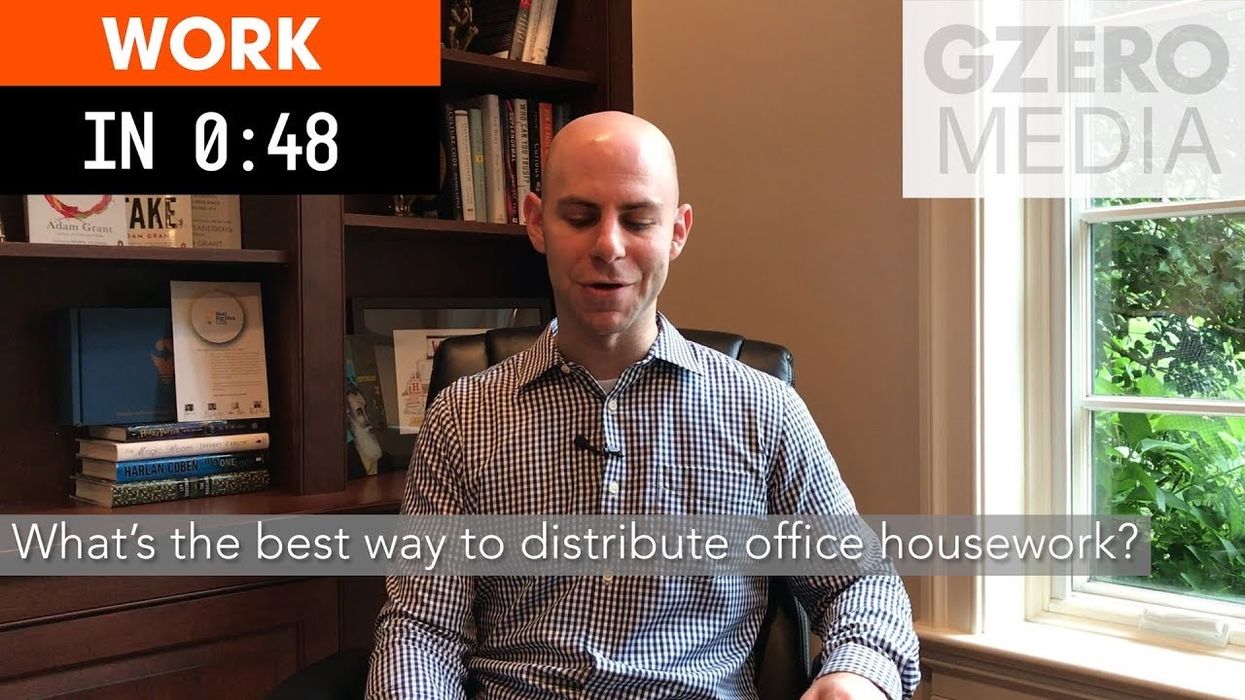VIDEOSGZERO World with Ian BremmerQuick TakePUPPET REGIMEIan ExplainsGZERO ReportsAsk IanGlobal Stage
Site Navigation
Search
Human content,
AI powered search.
Latest Stories
Sign up for GZERO Daily.
Get our latest updates and insights delivered to your inbox.
Global Stage: Live from Munich
WATCH RECORDING
Work In 60 Seconds
Presented by
What's the best way to come back from holiday vacation feeling refreshed?
It's Work in 60 Seconds with Adam Grant!
And go deeper on topics like cybersecurity and artificial intelligence at Microsoft on The Issues.
More from Work In 60 Seconds
What’s the best way to impress other people?
August 15, 2019
How to Interview Someone for a Job
August 08, 2019
What should you not say to a struggling coworker?
July 12, 2019
Why you shouldn't practice what you preach
June 07, 2019
How to give an effective performance review
May 31, 2019
How to Stay Motivated in Outer Space: Work in 60 Seconds
April 19, 2019
Who Should You Make Fun of At Work: Work in 60 Seconds
March 29, 2019
The Cost of Performance Incentives: Work in 60 Seconds
March 14, 2019
How to Avoid The Awkward Hallway Pass: Work in 60 Seconds
March 07, 2019
You're Not Morally Obligated to Answer Every Email: Work in 60 Seconds
February 21, 2019
How Your Work Life Can Improve Your Romantic Life: Work in 60 Seconds
February 14, 2019
Overcome Resistance to Change: Work in 60 Seconds
February 08, 2019
Work in 60 Seconds: Company Culture
January 31, 2019
Tech and Work in 60 Seconds: Straight from Davos!
January 25, 2019
Work in 60 Seconds: Disorganized People
January 17, 2019
Work in 60 Seconds: Make Interviews More Productive
December 21, 2018
Work in 60 Seconds: Perfectionists Don't Always Get Ahead
December 13, 2018
Work in 60 Seconds: Ditch Your 10 Year Plan!
December 07, 2018
Work in 60 Seconds: Optimal Turnover Rate
November 16, 2018
Taking Criticism, Speaking up, and new job offers
November 09, 2018
Group Meetings, New Teammates, and Compelling Arguments
October 25, 2018
Mentorship, Leadership and Failure vs. Success
October 11, 2018
Elevator Pitches, Intuition and Learning As A Leader
October 04, 2018
Bad Performance Reviews, Too Much Delegating, and Shorter Work Day
September 29, 2018
Job Quitters, Office Housework and Is Team Building Worth It?
September 13, 2018
Mentoring, open-plan offices and rude coworkers
August 09, 2018
GZERO Series
GZERO Daily: our free newsletter about global politics
Keep up with what’s going on around the world - and why it matters.
